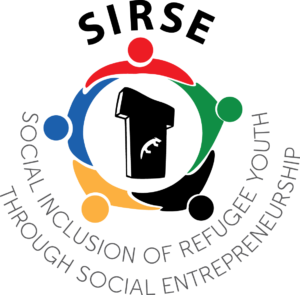
In the recent years, millions of people have been displaced due to the civil war in their countries such as Syria. At the beginning, people were forcibly displaced to the neighboring countries such as Egypt, Lebanon, Jordan and Turkey. Of these countries, Turkey ranks first as most refugee hosting countries. In Turkey, a border city Sanliurfa is the city that hosts the most refugees after Istanbul. Along the years passed and with the continuation of internal turmoil in Syria, the refugees seem no longer thinking of going back to their country. Therefore, the process of being integrated into the society where they live should start as soon as possible.
Only a small portion of up to 10% of the refugees living in Turkey are living in the Temporary Accommodation Centers (Refugee Camps). In time, these centers will also be closed. So, in general one of the world’s and in particular Turkey’s most important problem is the social inclusion of the refugees. Therefore, in this project, we aim to contribute to the problem of social inclusion by producing a solution proposal through entrepreneurship. We want to work with young people for social inclusion. Young people, if they have a job, facilitate their social inclusion, thus contributing to social integration by creating an exemplary role for their community as stronger individuals.
The main aim of the project is to provide for age groups between 25 and 30 a means of improving their life-chances and re-integrating them into society. This will be via the creation of a road map and creation of a feasibility study and model for the development of such policies. In such a way, immigrant youth will be given the opportunity to become part of society and feel part of the wider community. The method chosen to facilitate such a reintegration is the social entrepreneurship. For this, there will be a mentorship system used within the scope of the project. Firstly, 20 social entrepreneur mentor candidates will be given training from different social entrepreneur back ground. Candidates who are successful at the end of the training will become part of the mentor pool. Within the same period, 40 young entrepreneur candidates will be selected by running a joint study with our local / international partners. The youth will receive social entrepreneurship trainings through formal / non-formal / e-learning education methods. Later, having picked from the pools of mentors according to the areas of interest, mentors and mentees will be matched. Young social entrepreneur candidates will subsequently be guided and mentored.
As a result, this could contribute to the employment of young people with fewer opportunities. The project will also support their cultural adaptation in the society, the development of their social responsibilities and the development of industry in the region. The project to be implemented will be benefit from co-operation with international project partners, and will help facilitate a path towards further social and communal integration. The project aims to increase the level of prosperity and employment in the region via the initiative undertaken by Sanliurfa (Teknokent) Sciencepark and national/international partners civil institutions and universities. Such a project is also appropriate to the aims and mission of the European Union and such increased co-operative actions between universities, civil institutes and private industries will be of benefit and use for young people with fewer opportunities. It will also be a means for increased opportunity for R&D and innovation in the area of technology.
In this context;
a) A “University, NGO, Public Institution and Industry Cooperation Center” for migrants will be established within the Sanliurfa Sciencepark.
b) Serve as an interface between industry, university and civil institutions and this will play an important role towards the achievement of Sanliurfa Sciencepark.
c) The transfer of information and technology between the University and the Industry will be increased thus facilitating further joint projects to be carried out in the future.
d) Enabling young refugees to be empowered through entrepreneurship trainings.
e) With the mentoring system, young entrepreneurs who have the possibility of social entrepreneurship will be supported to realize their entrepreneurial dreams and their post-project situations will be followed.
f) Situational analysis will be carried out with sociological field studies on the entrepreneurship of young refugee youth.
g) In this project, which will be implemented with our international partners, information exchanges, various comparisons and shared experiences will be prepared in a joint report.
h) The web-based Entrepreneurship Management portal will constitute both as a source portal and as an example of modelling for future implemented projects. The Web portal will be a sustainable platform to bring together social entrepreneurs, trainers and mentors.